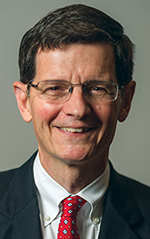Resources for Raising Foreign Service Kids
Get to know the nonprofit groups and State Department offices that offer a social safety net for Foreign Service youth.
BY JOHN K. NALAND
Growing up in a Foreign Service family presents both benefits and challenges. Benefits include an expanded worldview, heightened interpersonal and cultural sensitivity, increased tolerance, multilingualism, and the capacity to adjust more easily to changing circumstances. Challenges can include confused cultural identities, feelings of rootlessness, difficulties creating a sense of belonging, and, at times, exposure to physical hardship and danger.
Thankfully, Foreign Service youth and their parents do not have to face these challenges alone. Several nonprofit organizations and Department of State offices work hard to maintain a social safety net for our youth.
Unfortunately, many potential beneficiaries do not take advantage of these valuable resources. I hope this article will prompt more parents to utilize the programs and services that their colleagues put such great effort into making available.
American Foreign Service Association (AFSA)
AFSA’s flagship publication, The Foreign Service Journal, has published dozens of articles over the years dealing with raising and educating Foreign Service kids. See a listing at www.afsa.org/education-articles.
Since 1926, AFSA has offered college scholarships that last year supported more than 100 Foreign Service students with need-based and merit awards totaling over $400,000. For more information, visit www.afsa.org/afsa-scholarships.
As the legal representative of the Foreign Service, AFSA’s advocacy in recent years has included youth and family issues. For example, AFSA pushed for improvements in State Department support for children with special educational needs and secured passage of legislation granting in-state college tuition to Foreign Service dependents in their state of domicile, irrespective of how long it has been since they were last physically present in that state.
Associates of the American Foreign Service Worldwide (AAFSW)
For more than 60 years, the Associates of the American Foreign Service Worldwide has advocated for the interests of Foreign Service family members. In 1960, AAFSW initiated and led creation of the Family Liaison Office (now the Global Community Liaison Office), which runs the Community Liaison Office program. AAFSW’s efforts also gave birth to the Overseas Briefing Center (at the Foreign Service Institute) and the Foreign Service Youth Foundation.
This not-for-profit organization is open to all active and retired employees of all U.S. foreign affairs agencies, their spouses (including divorced and widowed), partners, and family members. It offers six scholarships for children of AAFSW members. In addition, the annual Secretary of State Award for Outstanding Volunteerism Abroad honors employees and family members who help the most vulnerable communities worldwide.
AAFSW links families through several Facebook groups and via Livelines, an online group that connects almost 3,400 members to share tips. The popular AAFSW book Realities of Foreign Service Life touches on raising children overseas. AAFSW assists families with evacuations to the D.C. area. Its volunteers facilitate stateside family member gatherings, lead virtual webinars, and host cultural events at the Department of State. For more information, visit www.aafsw.org.
Most FSYF programs are geared toward middle school and high school students.
Bureau of Medical Services (MED)
The Department of State’s Employee Consultation Service (ECS) in the Bureau of Medical Services offers free, confidential referrals to professional clinical social workers for State employees and their family members. These counselors can assist parents and children with family problems, blended family concerns, school adjustment problems, reentry concerns, and other emotional problems. ECS also coordinates several virtual support groups focused on parenting; see www.state.gov/counseling-resources-and-referral-services.
MED’s Child and Family Program completes post-specific educational and mental health clearance recommendations for children with identified needs. In addition, the office adjudicates the Special Needs Education Allowance for those children who meet eligibility criteria for educationally required services and support. For more information, see www.state.gov/office-of-child-and-family-programs.
The bureau’s Alcohol and Drug Awareness Program covers education, consultation, and treatment referrals for employees and family members dealing with alcohol or drug issues.
Foreign Service Institute Transition Center (FSI/TC)
For more than 45 years, the Foreign Service Institute’s Transition Center (TC) has supported U.S. government employees and their family members as they transition—internationally and domestically.
The Overseas Briefing Center (OBC) is both a physical and virtual hub of information for bidders and their families from all agencies falling under chief-of-mission authority. For the younger community members, the OBC’s resources include KidVids, which, gathered in partnership with the Foreign Service Youth Foundation, depict life at post from a child’s point of view. OBC’s Zine series focuses on different aspects of a nomadic lifestyle for middle and high school students.
The Transition Center’s Training Team also provides youth-specific programming in the form of “Super Saturday” events, an opportunity for kids to explore both the emotional and logistical aspects of a move overseas, as well as “Young Diplomats Overseas Preparation,” focused on safety and security for kids in grades 2 through 12.
Courses offered by TC’s Center of Excellence in Foreign Affairs Resilience include “Encouraging Resilience in Your Foreign Affairs Child.” For more information on how to access these resources or register for a course, visit www.state.gov/transition-center or email FSITCTraining@state.gov.
Foreign Service Youth Foundation (FSYF)
Since 1989, the Foreign Service Youth Foundation has helped young people embrace the adventure of an internationally mobile childhood by encouraging resilience, fostering camaraderie, and celebrating achievements. Open to dependent minors of U.S. citizen employees from all agencies serving under chief-of-mission authority, FSYF assists youth in adapting to changing environments as they transition between posts worldwide.
Global programs include webinars on third culture kids’ issues (including reentry seminars for students returning to the U.S. and college admissions workshops), an online video and document library, publications, virtual youth meetups, annual contests (art, essay, community service, and video), and academic merit scholarships.
AAFSW is a not-for-profit organization open to all active and retired employees of all U.S. foreign affairs agencies, their spouses, partners, and family members.
FSYF also organizes in-person events to connect its members in the D.C. metro area, including youth or family meetup events, volunteer work sessions, and a fall welcome-back picnic attended by more than 150 family members.
Most programs are geared toward middle school and high school students. Parents are encouraged to remain as members even after their children are grown to continue to give back and assist the next generation. For more information, visit www.fsyf.org or email fsyf@fsyf.org.
Global Family Liaison Office (GTM/GCLO)
Since 1978, the State Department’s Global Community Liaison Office (GCLO) in the Bureau of Global Talent Management has worked to improve the quality of life of U.S. government direct-hire employees and their family members from all agencies under chief-of-mission authority serving overseas and returning to the United States by providing advocacy, programs, and services.
GCLO’s Education and Youth Team provides guidance to assist families in making informed decisions about their children’s education. They provide information on boarding schools, Washington, D.C., area schools, special needs education, homeschooling, virtual learning resources, and college preparedness. They assist the Foreign Service community with information on childcare, gifted and talented resources, education allowances, adult education, and summer camps. GCLO’s Bouncing Back webpage contains information on transition and reentry planning for parents of Foreign Service youth.
The Unaccompanied Tours Team assists employees and their family members before, during, and after an unaccompanied tour. They provide guidance and information that can assist employees in the decision-making process for where their families will live during an unaccompanied tour. They manage the Children’s Medals and Certificates of Recognition Program and provide age-appropriate workbooks to children who have a parent preparing for or currently serving on an unaccompanied tour. For more information, visit www.state.gov/gclo or email GCLO@state.gov.
Office of Employee Relations (GTM/ER)
The State Department Bureau of Global Talent Management’s Office of Employee Relations contracts with WorkLife4You, a resource and referral service. WL4Y specialists are accessible 24/7 and provide guidance and referrals for a variety of services, including child/adult/pet care, financial/legal services, and health/wellness. WL4Y also provides Care Kits filled with practical products and guides. WL4Y is open to State Department direct hires and EFMs. For more information, contact WL4Y 24/7 at 1 (866) 552-4748 [TTY: 1 (800) 873-1322] or at www.worklife4you.com. Create an account by clicking on “Not registered yet? Start Now!” and entering registration code DOS. A State email address is not required to create an account.
USAID employees have access to a similar service called Staff Care. For details, go to www.usaid.gov/staff-care.
Office of Overseas Schools (A/OPR/OS)
The State Department’s Office of Overseas Schools, part of the Bureau of Administration, promotes quality K–12 education at posts worldwide. The office assists U.S.-sponsored overseas schools in the operation and expansion of programs that embody best educational practices employed in the United States. Regional education officers are available to discuss all aspects of educating a child while posted abroad, including special needs and gifted education. The office maintains Fact Sheets and Special Needs Profiles on assisted schools, as well as resources on bidding, special needs, gifted, child protection, and teaching in overseas schools. For more information, go to www.state.gov/office-of-overseas-schools/.
When sharing or linking to FSJ articles online, which we welcome and encourage, please be sure to cite the magazine (The Foreign Service Journal) and the month and year of publication. Please check the permissions page for further details.
Read More...
- “Foreign Service Youth Foundation: 30 Years of Service” by John K. Naland, The Foreign Service Journal, September 2019
- “MED’s Child and Family Program, Explained” by Lillian Walh-Tuco, The Foreign Service Journal, April 2020




